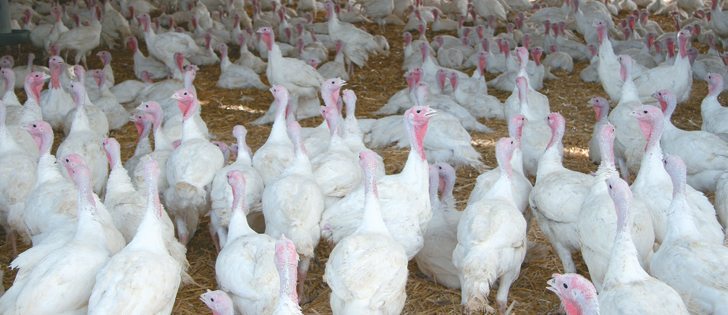New and improved | 84 percent of producers say they plan to make environmental improvements
A recent survey of Canadian turkey farmers has found that producers are investing in their farms.
Sixty-eight percent of the almost 100 producers who completed the Turkey Farmers of Canada survey said they have built or upgraded their operations in the past 10 years.
Executive director Phil Boyd said the survey is conducted every three to four years to keep in touch with producers’ priorities.
“It gives us a snapshot of what’s going on with their farms and how they’re doing for the future.”
Read Also

More factors affecting winter weather
When you combine a weak La Niña, early Siberian snow, and a warm northern Pacific, it’s easy to see why long-range winter forecasting is so complex.
He said farmers are building new barns, upgrading old ones, buying new equipment and investing in new environmental control systems for their barns.
Chair Mark Davies said he has invested in his operations in Nova Scotia.
“I invested significantly in a new generator. It’s more efficient,” he said.
“The one I had before was older than I am, I think.”
Davies has been in charge of his father’s farm since 1993 and since then, this “boots on the barn” farmer has switched to LED lighting, bought new fans, installed propane heaters and has developed a manure management program with a neigh-bouring dairy farmer.
“He takes all my manure and uses it. He brings me the straw and we have this sort of cycle,” he said.
The survey also found that turkey farmers care about the environment. Eighty-four percent of them have made or are planning to make environmental improvements to their turkey operation in the next two years.
Changes include improved litter storage, litter composting, more efficient ventilation and heating systems and alternative energy sources.
“It’s not like the old days when you threw everything on the back of the truck and took it to the landfill,” Davies said.
“You recycle and compost what you can and go from there.”
Boyd said the survey results will help the organization understand what farmers are doing, thinking and looking forward to in terms of their future plans and aspirations.
“Producers are willing to invest to make sure the consumer’s demands are met and to move forward with the times as things move forward in the marketplace,” he said.
Added Davies: “It gives us a sense of our position in the industry.”
Boyd said top tier priorities em-erged from the survey that will now be shown to the organization’s research committee so that it can see what is of interest to producers.
“We’re seeing a greater need for biosecurity. They are more focused on cost and quality of feed stuffs.”
Bird health and genetics were also seen as priorities.















